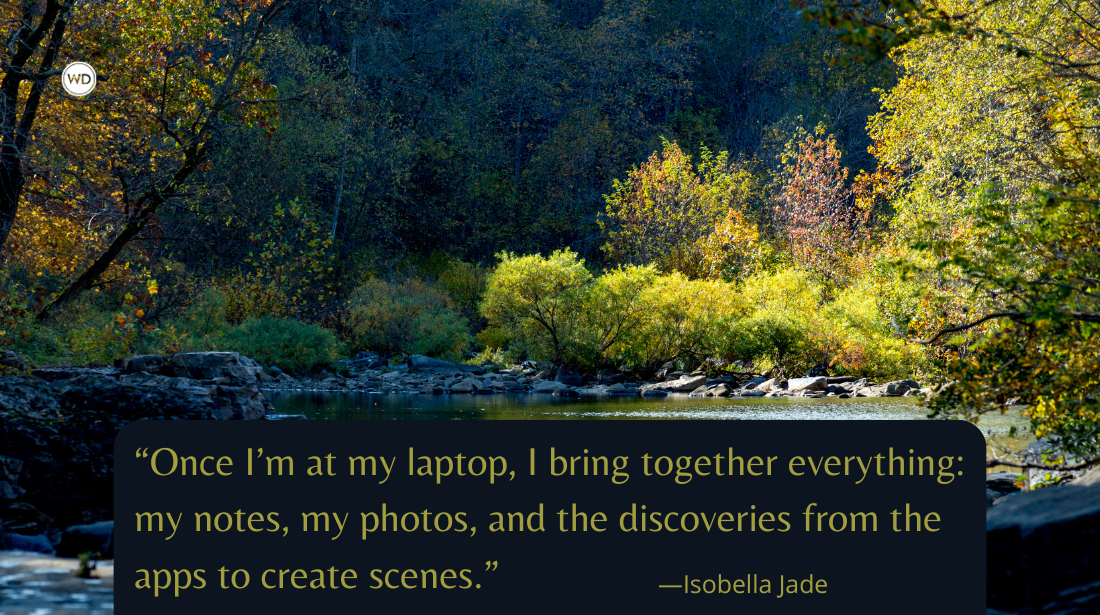8 Steps to Positioning Yourself as an Expert in Your Field
From giving interviews to engaging on social media, author Aileen Weintraub shares eight steps to position yourself as an expert in your field.
When writing and promoting your nonfiction book, one of the best ways to reach your audience and elevate your platform is by positioning yourself as an expert in your field. This will build trust with your readers and help you gain more exposure for your book. When you’re first starting out, the process can feel overwhelming, but by following these tips and taking them one step at a time, you will be well on your way.
Step 1: Write Companion Pieces
Pitching and writing companion pieces for newspapers and magazines that relate to the topic of your book is a great way to reach your target audience. Op-eds, reported pieces, and personal essays familiarize readers with both your subject and your writing style. My book Knocked Down: A High-Risk Memoir is about being a city girl who moves to the country and ends up on pregnancy-related bedrest in a rickety old farmhouse. To position myself as an expert, I wrote companion pieces for publications focusing on women’s health, pregnancy, parenting, and farming. This helped me expand my audience, and gave readers the opportunity to get to know my voice on the page, so when they purchased my book, they knew exactly what to expect.
Step 2: Speak on Book Podcasts and Radio Shows
Many podcast hosts are on the hunt for smart, knowledgeable, and dynamic guests, so consider scheduling guest appearances on podcasts and radio shows to talk about your subject.
Research podcasts that are a good match for your topic and then send a pitch letter introducing yourself and your work. Make sure to explain your area of expertise, what you can offer their audience, and why you would be a great fit for their show.
Step 3: Make Yourself Available as a Source
Reporters are always looking for experts to cite in newspapers and magazines. By making yourself available as a source to be interviewed and quoted, you are getting free publicity that will help position you as an expert. Often, journalists put out calls for sources on social media sites like Twitter, so follow the ones that write about topics similar to yours. You can also sign up for Help a Reporter Out (HARO), a site that sends out daily emails with a list of journalists looking for sources on specific topics.
Step 4: Focus on Speaking Engagements
Speaking engagements allow you to connect directly with your audience. Reach out to local libraries, community centers, and organizations you are affiliated with and suggest an event or a panel. Universities, book festivals, and conferences are always looking for guest speakers as well.
Step 5: Engage with Your Audience on Social Media
While social media can feel daunting, it’s a great way to network. Choose one or two sites you enjoy spending time on. Then follow influencers in your field and engage with them by leaving meaningful comments on their threads. Post about your topic regularly. Always be authentic and connect your posts to a personal experience when possible. It’s also a good idea to join online groups that focus on the themes you write about and contribute to the conversation in a supportive way.
Step 6: Have Five Talking Points
Becoming an expert in your field means being so familiar with your topic you can talk about it from any angle. When Knocked Down released, I was invited to appear on radio shows, panels, and podcasts. I didn’t always know what questions would be or where the conversation would go, so I always came prepared with at least five talking points that could be linked back to my book. This allowed me to come across as a professional who could seamlessly pivot from one idea to the next.
Step 7: Collaborate
One of the best ways to become an expert is to collaborate with other experts! Planning in-conversation events at local bookstores, attending seminars and conferences, and meeting others who write about what you do, will help you get noticed. Be sure to write reviews of other experts’ books and share their work on your social media platforms. Not only does this help you reach your audience, but it provides the additional benefit of allowing you to reach their audience as well.
Step 8: Teach a Workshop or Webinar
Once you feel comfortable talking about your subject, it’s time to consider teaching a workshop or webinar. While marketing and promoting Knocked Down, I spent so much time researching best practices for platform building that I ended up teaching a workshop for Writer’s Digest. I’ve also started an editing and consulting service to help individual clients find unique ways to position themselves as an expert in their field and build their platform. If you’re not ready to create your own webinar, co-host one with another expert.
While it takes time and patience, focusing on writing companion pieces, collaborating with others, making yourself available as a source, engaging with your audience, and teaching workshops will help you elevate your platform and position yourself as an expert in your field.
Aileen Weintraub is the author of Knocked Down: A High-Risk Memoir about marriage, motherhood and the risks we take. She is also a Pitch Witch working with writers to develop their query letters, pitches, book proposals, articles, and essays at witchesofpitches.com








